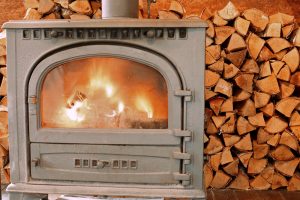
Manufacturers of wood and pellet heaters used by many families in rural areas would see regulatory relief under legislation that U.S. Sen. Shelley Moore Capito (R-WV) introduced on Tuesday to delay implementation of Environmental Protection Agency (EPA) performance standards by three years.
Manufacturers have voiced concerns about the feasibility of compliance with the second step of EPA’s New Source Performance Standards (NSPS), which are currently scheduled to take effect in 2020. The bill would delay implementation of level 2 NSPS standards until 2023.
“West Virginia has one of the highest levels of wood heat users per capita, especially in our rural communities, and our state is home to a number of small businesses affected by these rules,” Capito said. “By delaying implementation of EPA’s burdensome and unrealistic standards, this bipartisan legislation will give manufacturers a more realistic compliance deadline and ensure West Virginians continue to have access to this affordable and effective source of energy.”
By extending implementation of the performance standards for three years, the bill would give manufacturers of wood and pellet heaters more time to develop and certify compliant products.
“As chairman of the Environment and Public Works subcommittee with jurisdiction over this issue, I will continue working to advance this legislation in the Senate, providing the regulatory relief our manufacturers need and the clean air energy solutions West Virginians deserve,” Capito said.
Capito introduced the bill with bipartisan support from U.S. Sens. Richard Shelby (R-AL), Joe Manchin (D-WV) and Claire McCaskill (D-MO). The measure has also generated industry support.
“Many of our customers are young to middle-aged families still in the workforce trying to make ends meet by lowering their heating costs by using a wood or pellet stove,” said Matt Speakman, the owner of Mountain State Fireplace Gallery in Fairmont, West Virginia. “This legislation will help our industry to develop efficient and affordable stoves that customers will want to purchase as well as help us to avoid having stranded product inventory in May 2020. By extending the effective date to May 2023, we will have more time to work on developing new stoves to meet the new EPA standards.”



